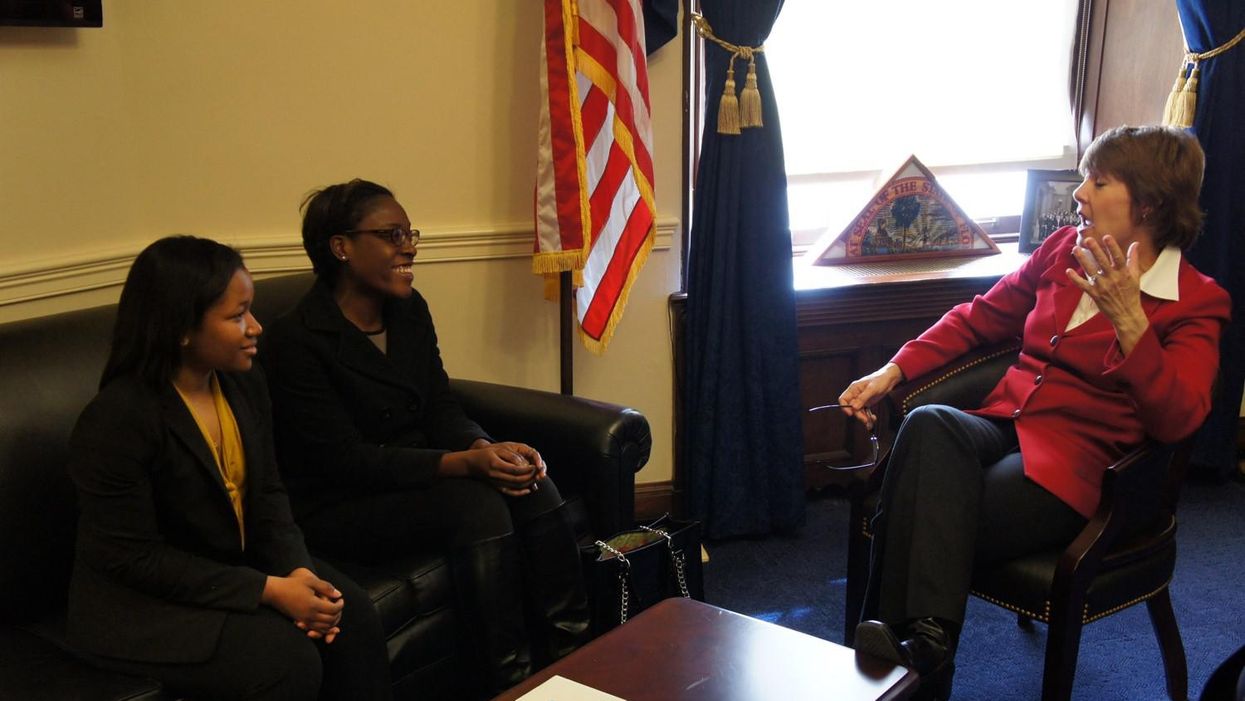Liska is a government affairs consultant and former head of the congressional engagement program at The Washington Center for Internships and Academic Seminars.
Washington is once again playing its quadrennial game of political musical chairs. And, although the makeup of Congress is not as different as some projected, the House and Senate membership includes plenty of new faces — and, with them, a host of new staff.
With this new Congress comes ample opportunity for the institution to improve and become more efficient. A significant amount of thought leadership has been done on this topic, most notably by the perennial efforts of the Congressional Management Foundation, but it's seemed to pick up steam the last few years. The genuinely bipartisan House Select Committee on the Modernization of Congress, for example, has been given two more years to build on the 97 ways to modernize the place that it has already recommended.
These proposals seek to allay a wide array of concerns — about financial inefficiencies, antiquated internal processes, delayed efforts at diversity and inclusion, decades-old procedures and the paucity of opportunities for members to interact with one another informally.
But so far one element key to a functional Congress has gone unaddressed: internships.
Like so many D.C. organizations, Congress cannot function effectively without interns. Answering the phones, running bills and other papers to the floor, gathering co-signers on letters, leading Capitol tours — the members and their committees rely on interns for mission-critical functions every day.
Not all these duties are savory, either. They include getting screamed at by constituents, remaining on Capitol Hill at all hours and enduring repetitive tasks like slicing open envelopes or collating and stapling reports.
And sadly, as the events of Jan. 6 made clear, interns are no less shielded than members and paid staff from real and potentially life-threatening danger.
Yet in the work of the Modernization Committee over the past two years, internships have been mentioned only once. And it was in passing, not in reference to any reform or analysis of self-improvement. So as the panel gets back to work — with Republican William Timmons of South Carolina newly taking the top Republican seat next to Chairman Derek Kilmer, a Washington Democrat — the role and treatment of interns must be addressed.
"It's not 100, but 97 is still an A," Kilmer said last fall about the committee's roster of recommendations so far. So here are three more that would make it a perfect score:
Pay all Hill interns. Provide them with additional resources before and after their internship. And create a standardized framework for internships.
All interns must be paid. Full stop. Entry-level experience in Congress should not solely be for the wealthy and privileged. And as anyone who has interned on the Hill knows, it's real work with real responsibility. While living in one of the most expensive cities in the country, unpaid interns are forced to watch every cent they spend. Aside from living in cramped group houses, student dorms or a relative's basement, some walk miles a day to get to work — or else endure commutes from suburbs almost two hours away. And believe it or not, some interns who support our nation's policymakers may face food insecurity.
By paying all interns, Congress can ensure these crucial parts of a member's office are treated as such and are able to focus 100 percent on the work at hand.
Paying interns is not a new concept, and there have been some major victories in recent years. Momentum is building to change the way internships are viewed on an institutional level thanks to the great work done by Pay Our Interns and College to Congress. Although some internships are now funded many still are not — including those at committees. The ball remains in Congress' court to widen the pool of funds so all interns can receive a fair salary for their often Herculean efforts.
Internships aren't just boxes to be checked; they should be launchpads for careers in public service and so they should be designed as such. So the Chief Administrative Officer's office and House Administration Committee should create a set of internship standards for the House including a set of baseline duties (constituent correspondence, answering phones and drafting policy memos, for example), a required orientation to Capitol Hill logistics and etiquette, the option of a confidential post-internship exit interview with the CAO — and mandatory training for intern coordinators.
This is not intended to standardize all internship experiences, because each office has its own rhythm and needs. It could provide a benchmark for interns to use in measuring their experience, however, while guiding offices on how to properly treat and empower interns. By emphasizing training and education, Congress can help make the internship experience more fulfilling for many more young people.
Finally, as an additional investment in those seeking a career in public service, any college student spending a whole semester in the Capitol should get expanded benefits during and after their internships These could include special access to the Congressional Research Service, limited access to the Hill's primary care services, commuting subsidies, a special speakers' series and access to learning programs like the Congressional Staff Academy.
One goal of the so-called Mod Com, also known as the Fix Congress Committee, has been to fight brain drain and staff turnover. Enhancing the intern experience with fair wages, expanded resources and standardized training for both the students and the aides who supervise them will do plenty to bolster congressional staff capacity — which will strengthen the institution.
If we commit to a diverse intern corps that's empowered, paid, supported and respected, we can continue to improve Congress and make it more efficient, effective and truly reflective of the people it serves.





















 Mayor Ravi Bhalla. Photo courtesy of the City of Hoboken
Mayor Ravi Bhalla. Photo courtesy of the City of Hoboken Washington Street rain garden. Photo courtesy of the City of Hoboken
Washington Street rain garden. Photo courtesy of the City of Hoboken